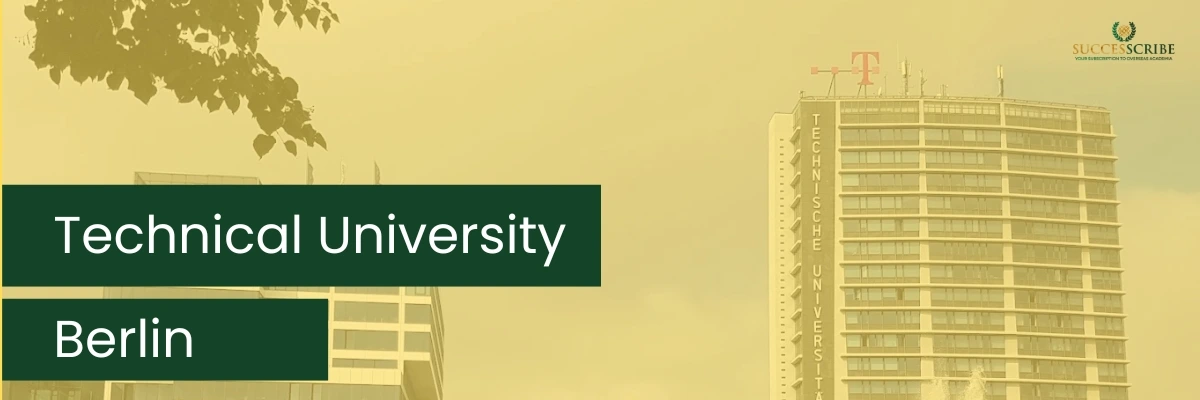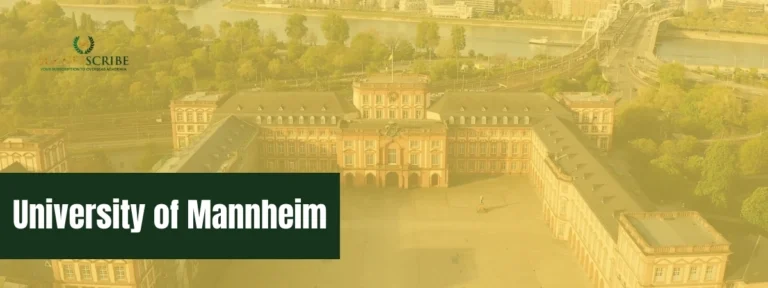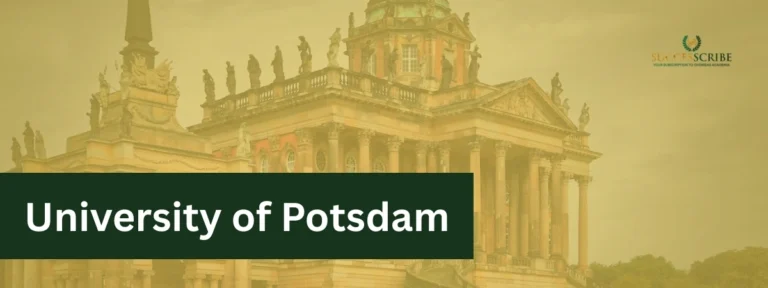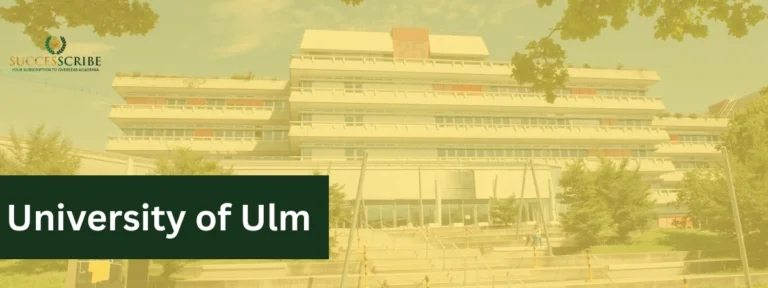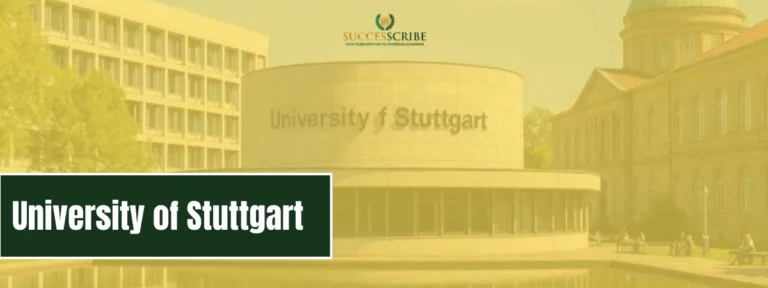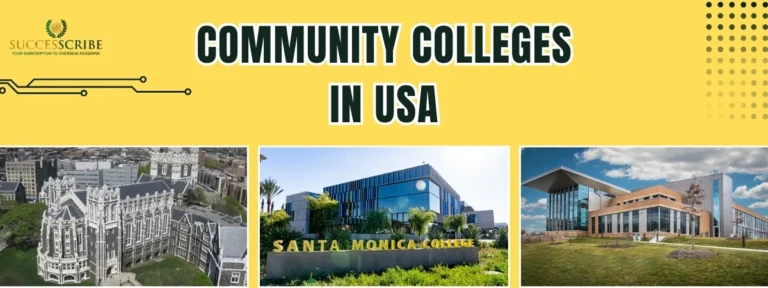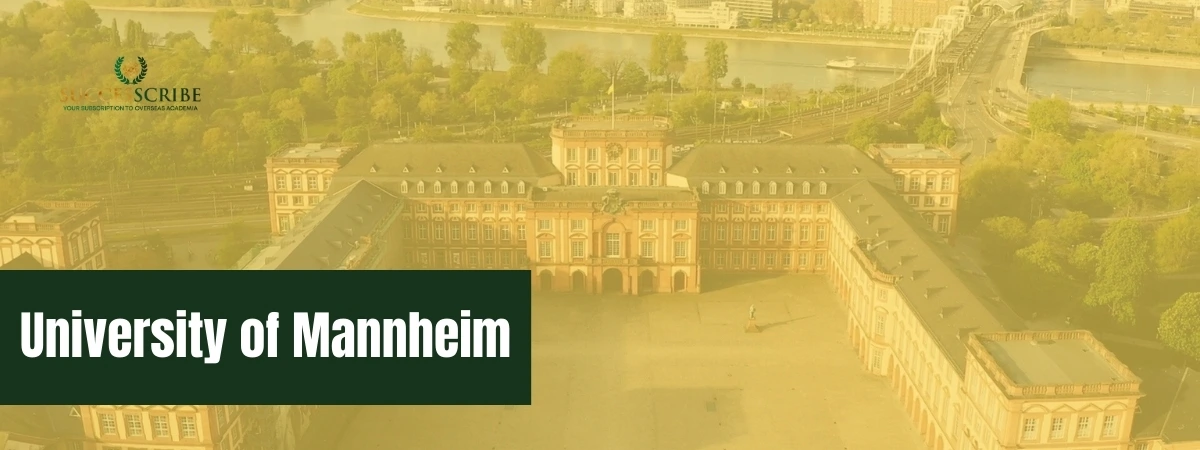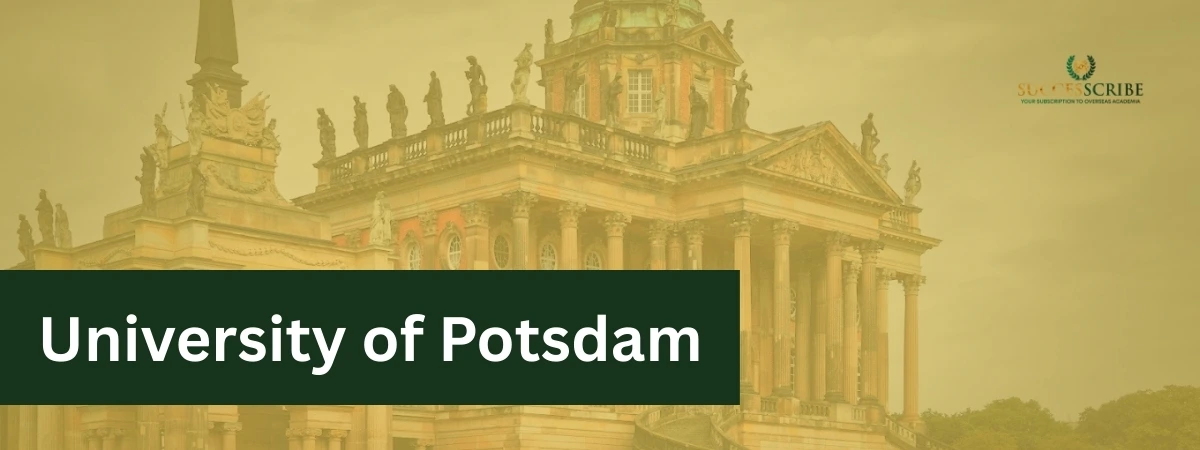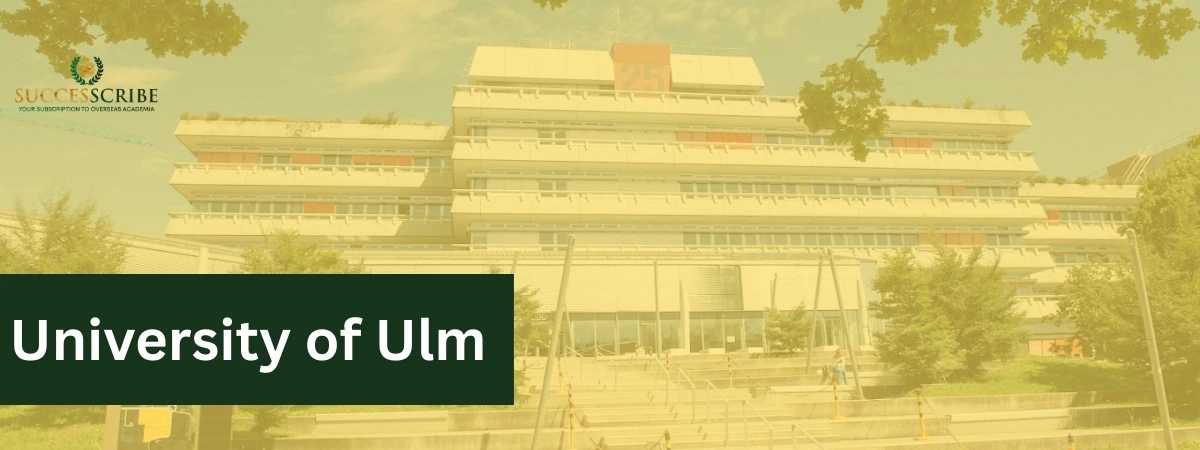Technical University Berlin (TU Berlin) is one of Europe’s most renowned technical institutions, known for its excellence in engineering, natural sciences, computer science, and economics. Nestled in the vibrant and cosmopolitan city of Berlin, the university stands out as a beacon for innovation, diversity, and research excellence.
This comprehensive topic explores Technical University Berlin in 2025, covering its global rankings, top programs, acceptance rates, tuition fees, scholarships, and more, providing Indian and international students with the most accurate and useful insights.
Overview of Technical University Berlin
| Detail | Information |
| Official Name | Technische Universität Berlin (TU Berlin) |
| Established | 1879 |
| Type | Public University |
| Location | Berlin, Germany |
| Student Population | 34,500 |
| International Students | 8,500 (25% of total) |
| Language of Instruction | German and English |
TU Berlin is a member of TU9, an alliance of Germany’s leading technical universities, and is widely recognized for interdisciplinary education and cutting-edge research.
Technical University Berlin: History and Development
Founded as the Royal Technical Higher School Charlottenburg (Königliche Technische Hochschule zu Charlottenburg), TU Berlin evolved through various transformations before becoming the institution we know today. It survived two world wars, division during the Cold War era, and emerged as a unified institution following German reunification.
The university’s campus spans several locations across Berlin, with the main campus situated in the Charlottenburg district. Its distinctive architecture blends historic buildings with modern facilities, symbolizing the institution’s commitment to honoring tradition while embracing innovation. By 2025, Technical University Berlin has completed several campus modernization projects, including the new Center for Digitalization and Sustainability that opened in late 2024.
Technical University Berlin Acceptance Rate

While TU Berlin does not publish exact figures, based on institutional data and student reports, the estimated Technical University Berlin acceptance rate is:
| Program Level | Estimate Acceptance Rate |
| Bachelor’s Programs | 45–50% |
| Master’s Programs | 25–35% |
| International Applicants | 20–30% (Master’s) |
Admissions are competitive for programs taught in English, especially Computer Science, Data Science, and Engineering.
TU Berlin Acceptance Rate for Bachelor’s Programs
Gaining admission into a bachelor’s program at Technical University Berlin is moderately competitive, especially for international students. As a public university in Germany, Technical University Berlin emphasizes academic merit and subject-specific qualifications rather than entrance exams.
| Bachelor’s Program | Estimated Acceptance Rate |
| B.Sc. Computer Science | 35–45% |
| B.Sc. Mechanical Engineering | 40–50% |
| B.Sc. Electrical Engineering | 40–50% |
| B.Sc. Architecture | 30–40% |
| B.Sc. Civil Engineering | 45–55% |
| B.Sc. Business Engineering | 35–45% |
| B.Sc. Biotechnology | 35–45% |
| B.Sc. Geosciences | 50–60% |
Technical University Berlin Acceptance Rate for Master’s Programs

Master’s programs at TU Berlin have become increasingly competitive, particularly for international applicants. Based on the most recent admissions data (2024-2025 academic year):
| Program | Acceptance Rate |
| Computer Science | 12% |
| Mechanical Engineering | 18% |
| Electrical Engineering | 22% |
| Sustainable Architecture | 16% |
| Business Engineering | 25% |
| Urban Planning | 31% |
| Renewable Energy Systems | 19% |
| Biomedical Engineering | 14% |
Technical University Berlin Ranking and Reputation
Technical University Berlin (TU Berlin) has built a solid reputation as one of Europe’s leading research-intensive institutions, particularly in the fields of engineering, computer science, and natural sciences. As a member of the elite TU9 Group, an alliance of Germany’s top nine technical universities, Technical University Berlin consistently ranks among the best universities in Germany and is globally recognized for academic excellence and innovation.
| Ranking Authority | 2025 Position |
| QS World University Rankings | #154 |
| QS Engineering & Technology | #64 |
| QS Computer Science & Info Systems | Top 100 Worldwide |
| Times Higher Education (THE) | #201–250 Globally |
| THE Engineering & Technology | Top 100 |
| U.S. News & World Report (Global) | #230 |
| ARWU (Shanghai Ranking) | 201–300 |
Technical University Berlin QS Ranking (2025)
The QS World University Rankings 2025 place TU Berlin among the top 160 global universities, reflecting its academic reputation, employer reputation, and research impact.
| Category | QS World University Ranking 2025 |
| Overall | #154 |
| Engineering & Technology | #64 |
| Computer Science & Information Systems | Top 100 worldwide |
| Mechanical Engineering | Top 100 worldwide |
| Electrical Engineering | Top 100 worldwide |
| Architecture | Top 150 worldwide |
The Technical University Berlin QS Ranking continues to climb due to strong research output, internationalization, and industry collaborations.
Technical University Berlin Top Courses

Technical University Berlin (TU Berlin) offers a wide range of highly ranked and industry-relevant programs across engineering, computer science, natural sciences, planning, and economics. The university is internationally known for its STEM (Science, Technology, Engineering, and Mathematics) programs, many of which are ranked in the Top 100 worldwide according to the QS World University Rankings.
In 2025, Technical University Berlin offers over 40 bachelor’s and 70 master’s degree programs, many of which are interdisciplinary and aligned with future-focused sectors like data science, sustainable engineering, urban mobility, and AI.
Top-Ranked Courses at TU Berlin (Bachelor’s & Master’s)
| Course | Degree | Language | Notable Features |
| Computer Science | B.Sc. / M.Sc. | English/German | AI, ML, Software Systems |
| Data Science | M.Sc. | English | Big Data, Predictive Analytics |
| Electrical Engineering | B.Sc. / M.Sc. | German | Automation, Power Systems |
| Mechanical Engineering | B.Sc. / M.Sc. | German | Automotive, Robotics |
| Architecture | B.Sc. / M.Sc. | German | Sustainable Design |
| Industrial Engineering | M.Sc. | German | Business + Engineering Blend |
| Energy and Process Engineering | M.Sc. | English | Top 10 in Germany |
| Mathematics | B.Sc. / M.Sc. | German | Applied Math, Theoretical Focus |
| Environmental Engineering | B.Sc. / M.Sc. | German | Climate Tech, Water Systems |
| Urban Design and Sustainable Planning | M.Sc. | English | Emerging in Global Urban Rankings |
Popular Bachelor’s Programs at TU Berlin
- B.Sc. Computer Science (Informatik)
- B.Sc. Electrical Engineering
- B.Sc. Mechanical Engineering
- B.Sc. Civil Engineering
- B.Sc. Industrial Engineering
- B.Sc. Biotechnology
- B.Sc. Architecture
- B.Sc. Environmental Engineering
Most bachelor’s courses are German-taught, so a minimum of B2/C1 level German proficiency is required.
Popular Master’s Programs (English-Taught)
- M.Sc. Computer Science
- M.Sc. Data Science
- M.Sc. ICT Innovation (Joint Erasmus Mundus Program)
- M.Sc. Environmental Planning
- M.Sc. Sustainable Mobility Management
- M.Sc. Urban Development
- M.Sc. Space Engineering
- M.Sc. Global Production Engineering
- M.Sc. Engineering Science
Over 20 master’s programs at TU Berlin are fully taught in English, offering global accessibility and diversity.
Technical University Berlin Top Computer Science Ranking
Computer Science at Technical University Berlin is internationally recognized, with strong research and development in AI, cybersecurity, and algorithms.
| Ranking Category | Position |
| QS Subject Ranking (Computer Science) 2025 | Top 100 Globally |
| National Ranking (Germany) | Top 5 |
| Key Strengths | Machine Learning, Cybersecurity, Software Engineering |
The Technical University Berlin top computer science ranking reflects its high graduate employability and international research partnerships with Google, SAP, and the Max Planck Institutes.
Technical University Berlin Admission Requirements
Getting into Technical University Berlin (TU Berlin) is highly prestigious and increasingly competitive, especially for international applicants aiming for technical and STEM-related programs. In 2024, TU Berlin received over 42,000 applications across all degree levels, with more than 30% from non-EU countries.
Admission Requirements for Bachelor’s Programs
| Requirement | Details |
| Academic Qualification | Equivalent to the German Abitur. For Indian students: CBSE/ICSE + 1 year of Studienkolleg or APS |
| Minimum Academic Score | At least 70% overall in Class 12 (varies by program) |
| APS Certificate | Mandatory |
| Language Proficiency (German) | Required for most programs: DSH-2, TestDaF (TDN 4 in all modules), Goethe-Zertifikat C1 |
| Language Proficiency (English) | Only for a few bachelor’s programs: IELTS 6.5, TOEFL iBT 88 |
| Other Requirements | Transcripts, passport, CV, SOP (optional), photograph |
Admission Requirements for Master’s Program
| Requirement | Details |
| Academic Qualification | Recognized bachelor’s degree in the same or related field |
| Minimum GPA (Indian scale) | At least 7.0/10 CGPA or 70% (translates to ~2.5 on German scale) |
| Language Proficiency (English) | IELTS: 6.5–7.0, TOEFL iBT: 88–95, PTE: 59+ |
| Language Proficiency (German) | DSH-2, TestDaF (4×4), Telc Deutsch C1 Hochschule – if program is in German |
| Documents Required | Degree certificate, consolidated mark sheet, SOP, CV, 1–2 LoRs, passport |
Faculties and Departments at TU Berlin
Technical University Berlin (TU Berlin) is one of the largest and most prestigious technical universities in Germany, renowned for its research, innovation, and interdisciplinary education. The university is organized into 7 faculties (Fakultäten), each encompassing multiple institutes and departments that offer both undergraduate and postgraduate degree programs.
These faculties cover a broad spectrum of disciplines from core engineering and natural sciences to economics, planning, and the humanities, ensuring a well-rounded and future-ready academic environment.
| Faculty | Focus Areas |
| Humanities and Education | Philosophy, history, linguistics, education science, cultural studies |
| Mathematics and Natural Sciences | Mathematics, physics, chemistry, sustainable resource management |
| Process Sciences | Bioprocess engineering, chemical engineering, food technology, material sciences |
| Electrical Engineering and Computer Science | Computer science, AI, data science, robotics, electrical & communication engineering |
| Mechanical Engineering and Transport System | Mechanical engineering, automotive engineering, aerospace, mobility systems |
| Planning, Building, and Environment | Architecture, urban and regional planning, civil engineering, environmental tech |
| Economics and Management | Industrial engineering, economics, innovation management, entrepreneurship |
TU Berlin Tuition Fees

One of the most attractive aspects of studying at TU Berlin remains its affordable cost structure, especially compared to universities in the United States, United Kingdom, or Australia. As a public university in Germany, TU Berlin charges minimal tuition fees:
| Student Category | Semester Fee |
| All Students | €329.80 |
This semester fee is not actually tuition but covers:
- Administrative costs
- Student services
- Semester ticket for public transportation in Berlin (zones ABC)
- Contributions to student union and student representation
- Digital infrastructure fee (added in 2024)
The absence of traditional tuition fees continues to make TU Berlin an exceptionally cost-effective option for both domestic and international students. However, students should budget for living expenses in Berlin, which have increased since previous years:
Living in Berlin
- Accommodation: €450-€750 (reflecting Berlin’s rising housing costs)
- Food: €250-€350
- Health insurance: €120-€130
- Study materials: €50-€100
- Personal expenses: €150-€250
- Total monthly expenses: €1,020-€1,580
Scholarships Offered by TU Berlin

Technical University Berlin (TU Berlin) provides several scholarship opportunities directly through its International Office and administrative bodies to support academically excellent, financially challenged, and international students. These scholarships are separate from DAAD and external foundations and are administered by TU Berlin itself.
| Scholarship Name | Funding Amount | Target Group | Application Period |
| TU Berlin Merit Scholarship | €1,800 – €3,600 per semester | International students with strong academics | May & November |
| TU Berlin Graduation Scholarship (STIBET) | €500 – €750/month | Final-semester international students | Rolling basis |
| Deutschlandstipendium (via TU Berlin) | €300/month (50% gov + 50% private) | High-achieving domestic & international students | April–June |
| PROMOS Mobility Grant | €350 – €550/month + travel bonus | TU Berlin students going abroad (internships/exchange) | March & September |
| TU Berlin Emergency Fund | Varies case-by-case | Students in acute financial crisis | Anytime during semester |
| Re-Enrollment Fee Waiver | Up to €300 (fee refund) | Students with financial hardship | Beginning of each semester |
International Collaborations at Technical University Berlin
Technical University of Berlin (TU Berlin) stands as a global leader in research and education, thanks to its extensive international partnerships. With a mission to promote global innovation, sustainability, and academic excellence, TU Berlin actively collaborates with top universities, research centers, and global institutions across more than 100 countries.
Its internationalization strategy fosters student and faculty mobility, joint degree programs, collaborative research, and knowledge exchange on a global scale.
Strategic Partner Universities Around the World
TU Berlin’s global alliances span prestigious institutions across North America, Asia, Europe, and beyond
| University | Country | Partnership Type |
| Massachusetts Institute of Technology (MIT) | USA | Research, exchange programs, AI initiatives |
| National University of Singapore (NUS) | Singapore | Dual degrees, smart cities collaboration |
| Tsinghua University | China | Urban tech, energy systems |
| Politecnico di Milano | Italy | Joint programs in engineering and architecture |
| KTH Royal Institute of Technology | Sweden | Research, Erasmus+, renewable energy |
| Indian Institutes of Technology (IITs) | India | DAAD-funded exchanges, engineering research |
| École Polytechnique | France | Mathematics, industrial management cooperation |
| University of São Paulo | Brazil | Sustainable development research |
TU Berlin Placements: Career Outcomes and Opportunities

Technical University of Berlin (TU Berlin) is recognized not just for academic excellence, but also for delivering strong employment outcomes. With its industry-driven curriculum, close ties with leading global companies, and a vibrant innovation ecosystem, TU Berlin ensures its graduates are highly employable both in Germany and abroad.
- 88% of TU Berlin graduates secure employment within 6 months of graduation
- 85% of international master’s students find jobs in Germany post-study
- Top hiring sectors: IT & Software (28%), Engineering (25%), Automotive (18%), Consulting (10%), Research & Academia (8%)
- Average starting salary: €48,000–€55,000 per year (Master’s)
- Top job locations: Berlin, Munich, Hamburg, Frankfurt, Stuttgart
Top Hiring Sectors for TU Berlin Graduates
| Sector | Percentage of Graduates Employed | Key Roles |
| IT & Software Development | 28% | Software Engineer, Data Analyst, AI Engineer |
| Mechanical Engineering | 18% | Design Engineer, Automotive Specialist, Process Engineer |
| Electrical Engineering | 12% | Embedded Systems, Circuit Designer, Signal Processing |
| Consulting | 10% | Strategy Analyst, Tech Consultant, Business Development |
| Automotive & Mobility | 10% | Vehicle Design, Autonomous Systems, EV Development |
| Research & Academia | 8% | PhD Scholars, Research Assistants, Lab Scientists |
| Renewable Energy | 5% | Sustainability Engineer, Solar Project Manager |
| Startups / Entrepreneurship | 4% | Founders, Product Managers, CTOs |
| Other | 5% | Civil Engg., Architecture, Government Roles |
Technical University Berlin: Top Employers & Company Collaborations
TU Berlin has strong ties with industry giants, both German and global, who actively recruit students via job fairs, thesis partnerships, and internships.
- Siemens AG
- Volkswagen Group
- SAP
- BMW Group
- Amazon Web Services (AWS)
- Bosch
- Google Germany
- Deutsche Telekom
- Zalando
- Audi AG
- Bayer
Notable Alumni of Technical University Berlin

Over the decades, Technical University of Berlin (TU Berlin) has produced some of the world’s most influential scientists, engineers, entrepreneurs, and thought leaders. Many of its alumni have gone on to make significant contributions in technology, academia, industry, politics, and the arts both in Germany and internationally.
The university’s strong academic foundation, combined with its culture of innovation, has helped shape generations of pioneers.
| Name | Field | Contribution / Recognition |
| Konrad Zuse | Computer Science | Inventor of the first programmable computer (Z3) in 1941 |
| Carl Bosch | Chemistry / Engineering | Nobel Laureate in Chemistry (1931); industrial-scale ammonia synthesis (Haber-Bosch Process) |
| Klaus Riedle | Mechanical Engineering | Former Head of Power Generation at Siemens AG |
| Ludwig Prandtl | Physics / Aerodynamics | Founder of modern aerodynamics; key figure in boundary layer theory |
| Sami Haddadin | Robotics / Artificial Intelligence | Pioneer in robotics and human-machine interaction; Leibniz Prize winner |
| Hartmut Esslinger | Industrial Design | Founder of Frog Design; major influence on Apple’s early product designs |
| Walter Kaufmann | Physics | Contributed to relativity theory; renowned for the Kaufmann–Bucherer–Neumann experiments |
| August Horch | Automotive Engineering | Founder of Audi (Horch & Co.), a key figure in Germany’s auto industry |
| Heike Hanagarth | Industrial Engineering | Board member at Deutsche Bahn AG; expert in industrial tech |
| Wolfgang Wahlster | Artificial Intelligence | Key figure in German AI development; former CEO of DFKI (German Research Center for AI) |
Conclusion
Technical University Berlin stands as a powerhouse of innovation, engineering excellence, and global academic impact. With its deep-rooted history, world-class faculty, and future-driven programs, TU Berlin offers an unmatched environment for aspiring engineers, computer scientists, architects, and planners. Its global rankings, strong industry collaborations, and highly affordable education make it one of the best destinations in Europe for higher studies, especially for international students.
FAQs
Is German language proficiency mandatory to study at TU Berlin?
For most bachelor’s and several master’s programs, yes—B2 or C1 German is typically required. However, over 20 master’s programs are taught entirely in English, especially in STEM fields.
How competitive is Technical University Berlin for international students?
TU Berlin has a moderately competitive acceptance rate, especially for English-taught master’s programs like Computer Science (12%) and Data Science. Bachelor’s admissions are less competitive but still selective based on academic performance.
Does TU Berlin charge any tuition fees?
No. TU Berlin does not charge tuition fees for most programs. Students only pay a semester contribution of approximately €329.80, which includes public transport and student services.
What are the career prospects after studying at TU Berlin?
Excellent. Around 88% of graduates find jobs within 6 months, especially in IT, engineering, consulting, and automotive sectors. Average starting salaries range between €48,000 and €55,000 per year for master’s graduates.
What makes TU Berlin different from other German universities?
TU Berlin is a part of the elite TU9 group and is known for its interdisciplinary research, strong ties with global industries, and central location in Berlin—a leading European tech and innovation hub.
Related Post
Freie University of Berlin
Ludwig Maximilian University of Munich
Technical University of Munich
Top MBA colleges in Germany

